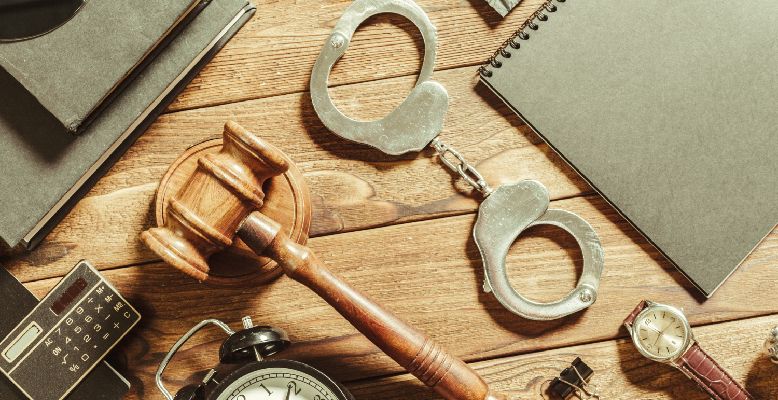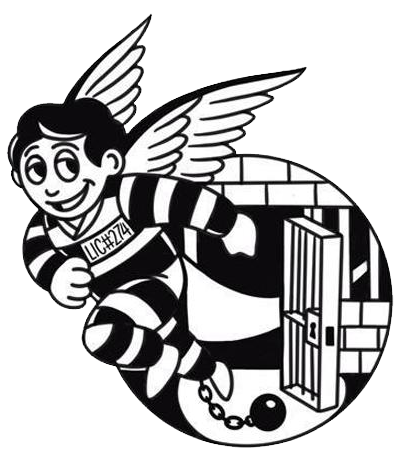If you or someone you love has been arrested, it’s normal to feel scared and uncertain. Many people in this situation are unfamiliar with the criminal justice system and don’t know what steps to take. That’s where Bring ‘Em Home 24/7 Bail Bonds comes in. We don’t just post bonds, we also provide guidance and support when you need it most. This blog is designed to help you understand what happens after an arrest in Texas. We’ll break down the key stages of the criminal justice system in simple terms, so you feel prepared and informed.
From arrest and booking to court appearances and sentencing, you’ll get a clear view of the process in the criminal justice system. Whether you’re facing misdemeanor or felony charges, having this information can help you stay calm, comply with the law, and take the right steps. Trust us to walk with you through every stage.
Step 1: The Arrest
The journey through the criminal justice system typically kicks off with an arrest. A person can find themselves in handcuffs if they’re caught in the act of a crime or if a warrant is outstanding for their arrest. A warrant is essentially a legal authorization for the police to take someone into custody.
Once arrested, the individual is brought to jail for booking. During this process, the police gather fingerprints, take mugshots, and collect personal information like the person’s name and address. They also note down the charges, like what the individual is being accused of, and input all of this into the system.
This step of the criminal justice system is crucial because it marks the official beginning of the legal proceedings. Getting arrested can be pretty intimidating, especially if it’s your first time, but having a grasp of what’s going on can help calm some of those nerves. At this stage, it’s key to stay composed, cooperate with the officers, and patiently await the next phase in the legal system.

Step 2: Getting Bail
After someone gets booked, they might be assigned a bail amount. Bail is essentially money that you pay to the court to allow the arrested individual to go home while they wait for their court date. It’s a way to ensure they show up for court without having to stay in jail. There are two primary methods to post bail in the criminal justice system. The first is to pay the entire amount in cash directly to the court, which can be quite pricey and isn’t feasible for everyone.
The second option is to reach out to a bail bond company, like Bring ‘Em Home 24/7 Bail Bonds. At Bring ‘Em Home 24/7 Bail Bonds, we can handle the bond for you for a small fee, typically around 10% of the total bail amount, making it a lot more manageable. Once the bail is settled, the person can be released from jail and wait for their next court date at home, as long as they stick to all court rules and show up on time.
Step 3: The First Court Appearance (Arraignment)
The first time a person appears in court after being arrested is called an arraignment in the criminal justice system. This usually happens within 48 hours of the arrest (not counting weekends or holidays). During the arraignment, the judge reads the charges out loud so the defendant knows exactly what they are being accused of. The judge also explains the defendant’s rights, such as the right to a lawyer and the right to remain silent.
At this point, the defendant is asked to enter a plea. There are three basic pleas: “guilty,” “not guilty,” and “no contest.” Pleading “not guilty” means the person wants to fight the charges. “Guilty” means they accept the charges and move directly to sentencing. “No contest” means they don’t admit guilt but also won’t fight the charges. It’s important to speak with an attorney before making this decision. The judge might also revisit the bail amount at this hearing.
Step 4: Bail Review or Adjustment
If bail wasn’t set at the time of arrest, or if the amount seems excessive, the judge has the option to review and adjust it during the arraignment. This process is known as a bail review in the criminal justice system. When making a decision about whether to lower, raise, or deny bail, the judge takes several factors into account. They look at the severity of the crime, the individual’s criminal history, and whether they pose a risk to the community or might flee.
Sometimes, additional bail conditions are imposed, such as regular check-ins with a court officer or restrictions on visiting certain places or associating with specific people. Having a trustworthy Bail Bond Services in Allen, TX, Bring ‘Em Home 24/7 Bail Bonds, can be incredibly beneficial in these situations. They’re familiar with the local court system and can help families navigate this part of the process. If the bail is modified and approved, the individual can return home while awaiting the rest of their case.
Step 5: Pretrial
The pretrial stage takes place between the arraignment and the actual trial. During this period, the defense and the prosecution work hard to gather evidence, interview witnesses, and get their cases ready. The lawyers might also sit down to talk about something known as a “plea bargain,” which is essentially a deal where the defendant agrees to plead guilty in return for a lighter sentence. A lot of cases wrap up this way instead of heading to trial.
Additionally, during the pretrial phase, the court might set certain rules for the defendant to follow, like attending regular check-ins, avoiding travel, or steering clear of specific individuals. If the case isn’t dismissed or settled through a plea deal, a trial date will be set. This stage in the criminal justice system is crucial because it lays the groundwork for how the rest of the case will unfold. Having legal support and a clear understanding of the rules can help the defendant stay out of hot water and get ready for what’s coming next.
Step 6: Trial (If Needed)
If the case doesn’t end in a plea deal or dismissal, it moves to trial. In the criminal justice system, a trial is where both sides present their arguments, and a judge or jury decides whether the defendant is guilty or not guilty. The trial starts with jury selection if it’s a jury trial. Then, the lawyers give opening statements to explain what they will prove. Next, each side presents evidence and calls witnesses to tell their version of what happened. The lawyers ask questions and try to show who is telling the truth.
After all the evidence is shared, both sides give closing arguments. Then, the judge or jury gives a verdict. If the verdict is “not guilty,” the defendant is free to go, and the case is over. If the verdict is “guilty,” the next step is sentencing. Trials can take a few hours or several days, depending on the case.

Step 7: Sentencing
The criminal justice system in Dallas is just and gives perfect solutions that are beneficial for the people. If a person is found guilty at trial or pleads guilty before trial, the next step is sentencing. This is when the judge decides the punishment for the crime. Sentencing can happen right away or at a later court date. The punishment depends on how serious the crime was, if the person has a criminal record, and other facts about the case.
Common punishments in the criminal justice system of Texas include time in jail or prison, probation (which means staying out of jail but following strict rules), community service, or paying fines. Sometimes, the judge may order programs like anger management or drug treatment. If the defendant has a lawyer, the lawyer may ask the judge for a lighter sentence by explaining the person’s background or showing they’ve taken steps to improve. If the person is sentenced to jail, they may have to report right away or turn themselves in later.
Appeal
If someone feels they were treated unfairly during their trial or thinks there was a legal error, the criminal justice system offers them a chance of an appeal. An appeal is basically a request for a higher court to take another look at the case and possibly change the decision. It’s important to note that appeals don’t introduce new evidence or hold a new trial. Instead, they concentrate on whether the original court made the right legal calls. The appeals court reviews the trial records and the written arguments from both parties.
If the higher court finds that a mistake occurred, it might overturn the conviction, order a new trial, or even reduce the sentence. If the appeal is turned down, the original decision stands. The appeal process can take several months or even years, and it’s best to have experienced attorneys on your side. While not everyone opts for this route, it remains a viable choice for those determined to challenge the charges.
Why This Matters to You
Understanding the criminal justice system is important if you or someone you care about is ever arrested. Knowing how the process works helps you make smart choices and avoid mistakes that could make things worse. The system can be confusing, but learning the steps can reduce fear and give you more control. Getting out on bail gives you the time to prepare your defense, take care of your job, and support your family. It can also make a big difference in how the case turns out.
With this knowledge, you’re more likely to get a better outcome if you’re free while waiting for trial. When you know your rights and what to expect, you’re better prepared. That’s why understanding the criminal justice system isn’t just helpful, but it’s essential when your future is on the line.
How Bring ‘Em Home 24/7 Bail Bonds Can Help
Navigating the criminal justice system isn’t easy, especially if this is your first experience with an arrest or jail. That’s where Bring ‘Em Home 24/7 Bail Bonds comes in. We do not just offer Bail Bond Services in Allen, TX, we’re your partner through the legal process. Our team offers fast, affordable bail bonds throughout Dallas and nearby areas. We’re available 24 hours a day, every day of the year, because emergencies don’t follow a schedule.
At Bring ‘Em Home 24/7 Bail Bonds, we also help you understand your bond conditions, court dates, and what’s required at every step of the criminal justice system. By working with local attorneys and court staff, we can speed up the release process and give you peace of mind. When every second counts, having a knowledgeable bail bond agent on your side can make all the difference. Let us help you get back on track, fast.

Final Thoughts
When you are suddenly dragged into the criminal justice system, the processcan feel overwhelming. But you don’t have to go through it alone. At Bring ‘Em Home 24/7 Bail Bonds, we believe in helping people take their first steps toward freedom and stability. Being informed about what happens after an arrest empowers you to make better decisions. No one ever plans to get arrested, but if it happens, acting fast is key.
Posting bail quickly can help you keep your job, support your loved ones, and prepare for court. We’re here to guide you through each stage of the criminal justice system and ensure you’re not left in the dark. If someone you love is behind bars, don’t wait. Contact us now. We’ll help bring them home.


